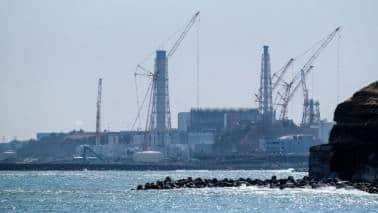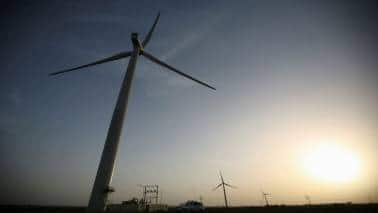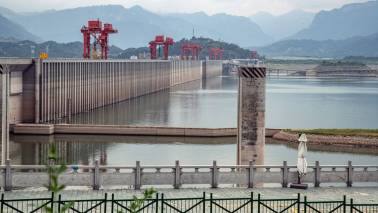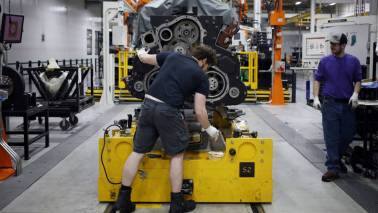
BUSINESS
Climate Change: Shipping needs to go nuclear to reach net zero
One 2011 US study comparing conventional and nuclear-powered military vessels suggested atomic ships cost more, but only by about 19 percent. That’s more competitive than the other low-carbon fuel options out there — and, these days, possibly cheaper than the current, diesel-heavy fuel mix in conventional vessels

BUSINESS
Climate Change: Homes need to turn into batteries to beat the summer power crisis
Global warming is altering the nature of power demand in the summer, and we’ll lose if we are only treating the symptoms, rather than the cause. Building technology that keeps homes insulated from the daytime heat will reduce the need for overnight cooling

BUSINESS
Here's how to stop EV batteries from ending up in landfills
The recycling and reuse industry heavily relies on standardised materials, which reflects in the 99% recycling rate of lead-acid batteries. Manufacturers will resist making identical battery packs, as EV batteries are witnessing an ever-changing gamut of established and emerging chemistries and mechanical designs. But a nudge in the right direction could foster standardisation

BUSINESS
Climate Change: Get ready for carbon capture's second coming
A decade or so ago, many had thought of carbon capture and storage as the best hope for decarbonising the world’s power systems. A business that was always viable technologically has finally found an economic rationale with a number of markets now offering more than $70 a metric ton, which is the viability threshold

BUSINESS
Climate Change: The 36-year-old treaty slowing the Arctic meltdown
Governments came together in 1987 to sign the Montreal Protocol to address the problem of CFCs eating away at the Ozone layer. That agreement has been a resounding success, and a template for subsequent climate accords. It has prevented an additional 443 million cases of skin cancer by 2100 in US alone and the Arctic Ocean’s first ice-free summer will come about 15 years later

TRENDS
What Australia’s wildfires can — and can’t — teach a smoky US
A 2019 analysis of 73 separate studies on public opinion and climate experiences found that extreme weather only had a weak effect on people’s views, far less than traditional factors such as underlying partisanship. However, elections after the Australian wildfires delivered the country's greenest Parliament

BUSINESS
Oil Shock: Saudi Arabia's pledged production cuts could boomerang on it
The situation in the oil market today is reminiscent of the 1980s in many ways. But this time, there could be a key difference when the Saudis open the taps again: The world may no longer want what they’re selling

BUSINESS
Don’t dismiss the fury over releasing Fukushima water into the Pacific
To build the clean energy sector the world needs, nuclear power advocates must sway public opinion their way. Every form of major infrastructure has to deal with public opinion, and in a democracy you don’t get to rule whether your opponents’ arguments are valid enough

BUSINESS
The Aussie billionaires dreaming of green energy exports have little chance of success
The International Energy Agency expects $1.7 trillion to be spent on clean energy this year, with expenditure on solar power exceeding that on upstream oil and gas for the first time. But the best projects will be erected close to the places where their power will be consumed

BUSINESS
The writing is on the wall. Saudi should realise oil demand is shifting for good
The world's largest oil producer keeps playing with supply cuts rather than realise that oil demand is slowing with more electric vehicles on the roads and prolonged economic weaknesses in China and elsewhere

WORLD
India's enthusiasm for clean energy is a lesson for developed countries
A far cry from its earlier wariness for international climate conferences, India is taking the initiative, fuelled by the growing self-confidence of a country that’s seeing the fastest economic growth this year among G20 economies.

WORLD
Renewables: No country will be the Saudi Arabia of the Green Hydrogen age
Like sulphur and ammonia — which are abundant and cheap, the existing hydrogen trade that consumes nearly 100 million tonnes a year is going to be used close to the place it was produced. So no country will dominate the trade

BUSINESS
A state-owned power utility's failure forced South Africa to let its market work. For India, a lesson
As South Africa’s power system has descended deeper and deeper into crisis, some of the rules that had served to stymie renewables have been gradually abandoned and the private sector progressively allowed to take over

BUSINESS
Climate Change: A torrid summer risks stalling Asia’s climate goals
Expectations of a torrid summer have sent coal stockpiles in Asia’s biggest economies soaring in recent months — and sooner or later, all that carbon is going to end up getting burned

BUSINESS
A reality check for the unhappy marriage between the oil industry's two influential bodies
IEA is an energy agency and OPEC a petroleum organisation. IEA wants OPEC to ensure security of supply while the oil cartel wants IEA to ensure security of demand. But IEA won't guarantee that with electrical vehicle sales rising and crude oil demand stagnating

BUSINESS
The plans to power cars with cooking oils don't stand a chance
There isn't enough of it. Against 200 million metric tonnes of vegetable oil every year, oil production is nearly 5 billion tons. So all the oilseeds in the world can't power vehicles beyond a couple of weeks. And they are needed for human and animal consumption too

BUSINESS
Nuclear Power: A revival will need more regulation, not less
Modest, but crucial, shares of nuclear energy in tandem with wind and solar will ensure we meet decarbonisation targets. The renewables versus nuclear debate was a needless distraction. Governments must take the lead in ensuring nuclear plants get built

TRENDS
Climate Change: Sustainable aviation claims don't stack up
Aviation’s carbon footprint is far more likely to increase than decline. Powering long-haul aircraft with batteries or hydrogen isn’t possible, and hopes of a two-third cut in emissions reductions from sustainable aviation fuel appear impossible

BUSINESS
Why one small-town manufacturer pollutes more than Gazprom
But the carbon emissions of diesel engine-maker Cummins rival some big names

BUSINESS
India's heatwave problem getting worse is a warning to cut down on fossil fuel consumption
Protectionism towards coal is going to be increasingly hard to sustain for India when people begin to pay with their health, wealth and futures when rising day-time temperatures make lives unbearable and a cleaner path to energy transition is at hand

BUSINESS
Wind’s future is looking more turbulent than ever
The world’s demand for clean energy is very strong, but the supply side is a mess that has yet to be untangled

BUSINESS
How cleaning up pollution may be heating the planet
Reducing aerosol emissions is a priority for global health but aerosols also helped in cooling the atmosphere. As aerosol emissions reduce, warming could be as much as twice as rapid between 2010 and 2050 as in the previous four decades

BUSINESS
Gas Deal: Why China keeps pulling the rug on Vladimir Putin’s pipeline
Beijing can afford to keep Moscow guessing about a gas pipeline deal because it has alternatives like a proposed pipeline from Turkmenistan and shipped gas. But Russia is desperate for a deal

BUSINESS
Your local solar panel plant may be holding back net zero
A new wave of protectionism is sweeping the sector under the guise of a push for more local manufacturing











